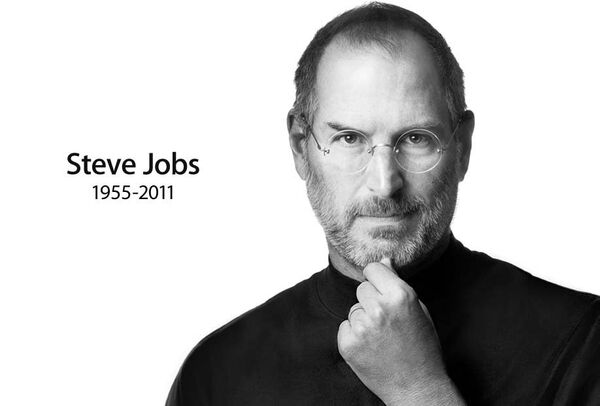Today the World Mourns a Man Who Changed the World, but Where Does Russia Fit in that Picture?
Steve Jobs, the Apple co-founder and innovator behind many of the company’s leading products, died yesterday after a long battle with pancreatic cancer. The proliferation of iPhones and, more recently, iPads into the hands of Russia’s trendy and powerful has led to an outpouring of condolences here for the man who many believe changed the world. But how true is that in a country where modernization has become the buzzword of yesterday?
Anyone who is anyone among Russia’s politicians and entrepreneurs offered their condolences, as well as their two cents, today on Jobs’ death and his impact on the world around them. Chief among them was Russian President Dmitry Medvedev, who is never far from his iPad at meetings or economic conferences. “People like Steve Jobs change our world,” Medvedev tweeted today. Anatoly Chubais, the architect of Russian privatization and current head of Rosnano, wrote: “In the east they say: he who has reached the pinnacle becomes meaningless. But who changes the world more: great politicians or great entrepreneurs?”
Cult worship of the Apple brand is nothing new, but how much of an impact did its products really have in Russia, where only 43 percent of the population has regular access to the internet? While the company has never held a large market share in the country’s mobile phone or computing markets, the recent proliferation of iPads – in a country already teeming with hundreds of thousands of iPhones – shows the brand’s penetration into the circles of the hip and powerful in the Moscow elite.
Eldar Murtazin, editor in chief of mobile-review.com, said the iPhone’s release in the United States in 2007 was Apple’s first big hit in Russia, far surpassing interest in the iPod and personal computers. “The iPhone for Russia was the first product which became truly a mass-product here. Within a year and a half over 300,000 iPhones were brought into the country, in suitcases, secretly. It was an absolute bomb here,” he said.
Yet all the same, the market share for Apple in telephones remained remarkably small, added Murtazin – somewhere close to 1.5 percent. Why then, was there such heartfelt reaction to the death of a man who built a dominant business thousands of miles away? “It’s not about the products; it’s about the personal figure of Jobs, which is something that people can understand even if they are far removed from the products. People don’t just like pioneers who establish something new, but people who have insisted on their own, different point of views.”
Apple has actively cultivated its independent image since the mid-1980s, when it released its dystopian parody “1984” advertisement. In its Think Different advertising campaign, the company used other figures, including Einstein and Ghandi, as examples of those whose independent thinking changed the world. The figure of Jobs, who was renowned for his innovative vision but also known for his heavy-handed management style, seems to have struck a chord with a progressive segment of Russian society.
“Russian people have a way of being jealous of other’s successes – I never heard and never saw that with my friends who thought of Jobs,” Mihail Zarin, founder of the mobile application developer Mobiety, told Russia Profile. “We see very rich people in Moscow, and very expensive cars, and some people get jealous of this – but my friends were really just encouraged by [Job’s] success.”
Mobiety’s development mirrors the progression of a small part of Russia’s tech-savvy society that is increasingly modeling itself on its western counterparts. Zarin and his team got their start after winning second place at a competition for young entrepreneurs at Moscow’s Higher School of Economics, which was modeled on similar competitions at Stanford University in the United States.
For those in the group, said Zarin, Jobs’ influence was definitive. “Jobs changed the world many times over, not necessarily for all Russians but for some specific people. He changed the way entrepreneurs like me think,” said Zarin. “He really sped up the world for us.”
Outside of the tech sector, Jobs’ example can also be seen as an alternative path to wealth, free of the murky background of many of Russia’s modern oligarchs. Sergei Aleksashenko, director for Macroeconomic Research at the Higher School of Economics wrote: “He created a great company from nothing… And if suddenly our political demagogues once again say that it’s impossible to honestly make a billion dollars, present him [Jobs] as an example… [he did it] without oil, gas, highly-placed friends, kickbacks and embezzlement.”
Despite the love affair with Apple in certain Russian circles, however, Murtazin noted that the reaction to Jobs’ death, as well as the company cult, was even greater in the United States. “There’s a level of religiosity towards the products there which we don’t see in Russia,” he said.
The views expressed in this article are the author's and may not necessarily represent those of RIA Novosti.

